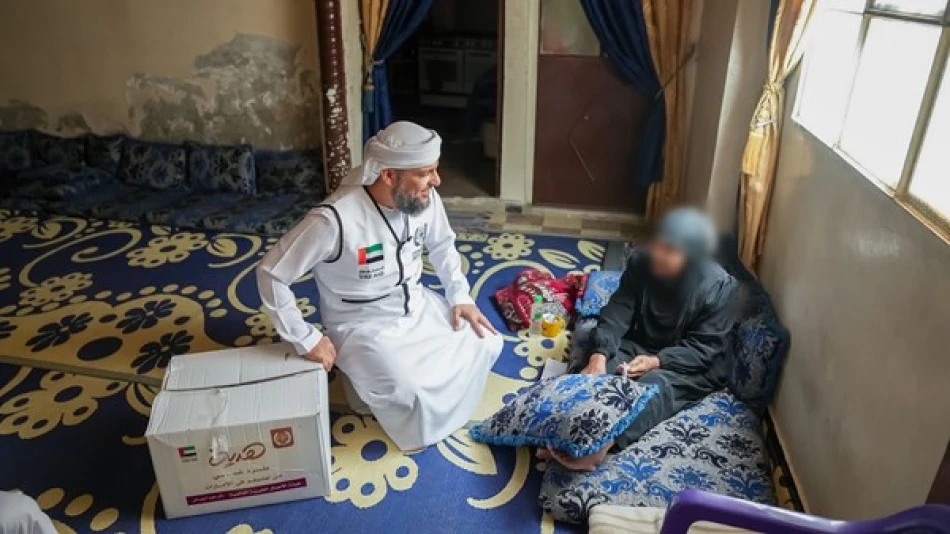
Charitable Foundation Invests 8 Million AED in Developmental and Service Projects Across Syria
UAE Charity Launches $2.2 Million Syria Aid Package as Gulf States Expand Post-Conflict Reconstruction Role
The Global Charitable Business Authority has announced an 8 million dirham ($2.2 million) development and relief initiative for Syria, marking another significant step in the UAE's growing humanitarian diplomacy across conflict-affected regions. The comprehensive package targets basic infrastructure, education, and family support as Syria continues rebuilding efforts after years of devastating civil war.
Multi-Sector Approach to Syrian Recovery
Dr. Khalid Abdul Wahab Al Khaja, Secretary-General of the Authority, will personally lead a delegation to Syria to oversee the initiative's implementation. The projects span critical sectors including education infrastructure through school construction and rehabilitation, religious facilities with mosque restoration, water security via well-drilling operations, and social support through orphan sponsorship and family assistance programs.
The initiative also encompasses healthcare services and food distribution, including dates and essential supplies—reflecting the UAE's strategic approach to addressing both immediate humanitarian needs and longer-term development challenges simultaneously.
UAE's Calculated Humanitarian Diplomacy
This announcement aligns with the UAE's broader regional strategy of using humanitarian aid as a tool for diplomatic engagement and influence. Unlike traditional donor approaches that focus solely on emergency relief, the Emirates consistently packages infrastructure development with immediate aid, creating lasting economic ties with recipient nations.
The timing is particularly significant as Syria gradually emerges from international isolation, with several Arab nations—led by the UAE—normalizing relations and resuming economic cooperation. This aid package positions the UAE as a key partner in Syria's reconstruction phase, potentially opening doors for future trade and investment opportunities.
Regional Context and Competition
The UAE's Syrian initiative comes amid intensifying competition among Gulf states for regional influence through humanitarian channels. Saudi Arabia and Qatar have similarly expanded their aid footprints across conflict zones, while the UAE has distinguished itself through direct, high-visibility leadership involvement and infrastructure-focused assistance.
Sheikh Hamid bin Rashid Al Nuaimi, Supreme Council Member and Ruler of Ajman, has provided backing for the initiative, demonstrating the project's significance within UAE leadership circles. This high-level endorsement suggests the Syrian aid package represents more than routine charity work—it's a calculated diplomatic investment.
Implementation Strategy and Accountability
The Authority emphasizes field monitoring and direct oversight to ensure donations reach intended beneficiaries—a response to widespread concerns about aid diversion that has plagued Syrian relief efforts for years. This hands-on approach differentiates the UAE's methodology from traditional international aid mechanisms that often rely on third-party implementation.
Several projects have already commenced, including well maintenance, school repairs, and food assistance programs, indicating the initiative's immediate operational capacity rather than lengthy planning phases that characterize many international humanitarian efforts.
Strategic Implications for Regional Reconstruction
For Syria, this UAE initiative represents access to Gulf capital and expertise during a critical reconstruction period when Western funding remains limited due to ongoing sanctions. The focus on infrastructure and sustainable development suggests long-term economic partnership potential beyond humanitarian assistance.
The project's success could establish a template for UAE engagement in other post-conflict environments, reinforcing the Emirates' position as a pragmatic regional power willing to engage where others hesitate, ultimately expanding its economic and diplomatic influence across the Middle East.
Most Viewed News

 Layla Al Mansoori
Layla Al Mansoori






